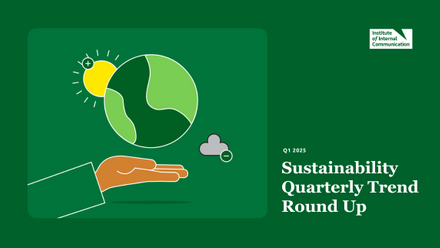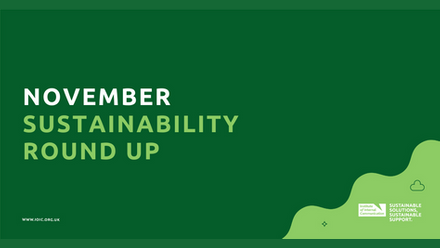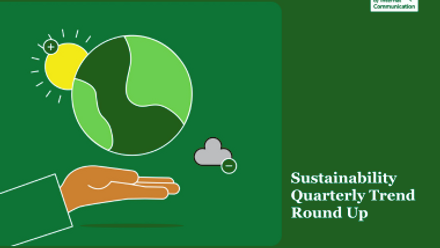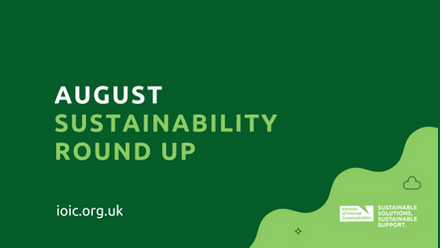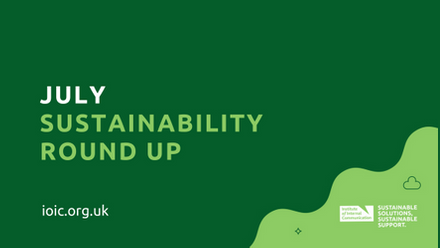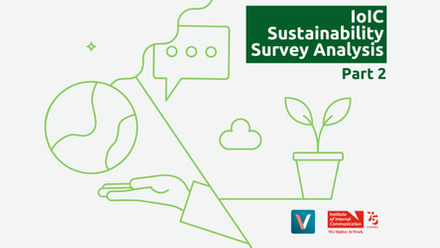Community sustainability
Following yet more record-beating summer temperatures in the northern hemisphere, experts worry that our over-reliance on air conditioning means we’re walking into a dangerous trap that will further exacerbate the climate emergency.
It’s easy to see its widespread uptake as a remedy to hotter weather, but climate scientists say it’s more accurate to regard it as a ‘crutch’ – and, of course, if we lean on a crutch too much, it can snap.
While it provides immediate relief, air conditioning is energy-intensive and raises outdoor ambient temperatures in our communities. It’s also beyond the reach of some, deepening inequality.
Climate scientists fear, for example, that where urban planning defaults to constructing air-conditioned buildings, it creates the risk of 'climate apartheid' for people in poorer, more peripheral communities, where rising heat is becoming a major health risk for those inhabiting them.
A growing AC dependence often leads to the construction of buildings ill-suited to local environments, with large glass facades and a lack of natural ventilation. For zones prone to potential blackouts during heatwaves, these poorly designed structures can become deadly traps. A stark example is Phoenix in Arizona, where modelling predicts that a two-day power outage could potentially hospitalise over half the residents and cause thousands of deaths.
Some cities grappling with rising temperatures are experimenting with innovative – and even historical – cooling strategies. Seville, for instance, is reviving the ancient Persian ‘qanat’ technique, while other cities are implementing green spaces, cool pavements and vernacular architecture.
New technologies are also coming online that seek to provide greener cooling techniques.
We deserve to be comfortable where we live and work, wherever possible. But we’re all going to have to re-assess our relationship with aircon. To truly address urban heat, our communities and the buildings we live and work in will increasingly need to prioritise sustainable, inclusive cooling strategies that work with, rather than against, local climates.
Organisational sustainability
Should ‘people sustainability’ be an integral element of any organisation’s overall sustainability strategy?
That’s certainly the M.O. of Swiss insurance behemoth, Zurich. The £44 billion company has made sustainability a cornerstone of its business strategy. It aims to be a global leader in social and environmental responsibility, having invested £7.4 billion in climate solutions and significantly reduced its carbon footprint.
But as part of its objective to be one of the most sustainable companies in the world, Zurich also makes 'people sustainability' a priority for its 61,000 staff globally.
This approach prioritises learning, development, DEIB and wellbeing to create a thriving work environment and foster a resilient, future-ready workforce. Companies that invest in employees' skills and career development tend to be better placed to address shifting customer needs and adapt to changing market demands.
The insurer’s strategy has yielded remarkable results, with 85% of employees recommending it as a great place to work. By putting people at the heart of its sustainability strategy, Zurich recognises that empowered, informed – and ‘greener’ employees – are crucial for co-creating future business success.
Economic sustainability
The burgeoning post-growth – or ‘degrowth’ – movement challenges the traditional focus on GDP as an adequate measure of progress, as it fails to distinguish between socially beneficial and destructive economic activities.
Degrowth calls for a radical rewiring, reimagining economic systems to prioritise social and environmental well-being over profit. That means a reduction in the production of environmentally harmful goods like SUVs, fast fashion and industrially produced meat. Instead, the movement emphasises the need for targeted growth through increasing investment in sectors that improve people's lives and achieve ecological goals, such as healthcare, public transport and renewable energy.
Proponents argue that a managed reduction in growth for high-emitting industries and countries is going to be essential if we’re to address the climate crisis effectively and collectively.
While critics worry about potential job losses and reduced public services, supporters contend that a purposeful economic reorganisation would benefit the majority in the longer term. They propose solutions like a jobs guarantee linked to necessary public works and increased economic democracy to ensure production aligns with social and ecological priorities.
We suspect many CFOs around the world might need some convincing that this is the way forward for their individual businesses, but this interesting article highlights why perpetual growth on a planet with finite resources is neither going to be economically sustainable – nor something we should aspire to – in the midst of an escalating climate crisis. It’s certainly food for thought for everyone.
Environmental sustainability
It’s taken them a year, but a collaboration between scientists from 15 countries has just solved a seismic mystery that demonstrates the planetary-scale impacts of man-made climate change.
In September 2023, a colossal landslide and mega-tsunami in Greenland, triggered by the climate crisis, caused the Earth to vibrate for nine days. This unprecedented event, detected by global earthquake sensors, puzzled scientists initially.
The collapse of a 1,200-metre-high mountain peak into Dickson Fjord occurred when melting glaciers could no longer support the rock face. The resulting 200-metre-high wave and subsequent water displacement sent seismic waves through the planet.
This event marks the first recorded landslide and mega-tsunami in eastern Greenland, highlighting the rapid changes in Arctic regions due to global heating.
The incident destroyed an uninhabited 200-year-old Inuit site and narrowly missed a tourist cruise ship, but it emphasises the increasing risks to life in areas previously deemed to be stable.
The Earth vibrating for over a week and a tsunami the height of a skyscraper might sound like a scene straight out of sci-fi disaster movie The Day After Tomorrow, but – twenty years after that film’s release – we can add it to the growing list of ways humans are impacting the planet.
We recently shared how the mass melting of polar ice is reshaping the Earth and making the length of each day longer, as well as causing the north and south poles to shift. But this shocking piece of news couldn’t be more a visceral example of what’s at stake if we don’t all play our part in addressing the climate emergency.
Personal sustainability
The Swedes invented the concept of flygskam – or ‘flight shame’. Popularised by climate activists, it initially caused concern among airline executives.
However, passenger traffic at European airports has returned to pre-pandemic levels, driven by leisure and family travel. And after a record summer for air travel, ‘flight shame’ appears to be grounded on the tarmac for the time being.
With tourism accounting for about 8% of global greenhouse gas emissions, this presents a major challenge as the world attempts to reach net zero. Aviation, the largest source of tourism-related pollution, is particularly difficult to decarbonise. While the industry is exploring alternatives like synthetic fuels and biodiesel, these solutions face significant hurdles in scaling up.
Another challenge is partly due to governments' promises to address climate change, which have led people to believe individual action is less necessary.
Governments also put out mixed messages, which confuse consumers. The country that gave us flygskam has also just scrapped its aviation tax, for instance, despite acknowledging that this will probably lead to greater CO2 emissions.
For many of us, a summer escape is a non-negotiable, and that often means taking to the skies, despite the environmental costs. But there’s clearly still a big gap between knowledge and action, so no matter how mixed the messaging, we can’t avoid reflecting on the consequences of our own behaviour forever.
Moving forward, the challenge will lie in reconciling our wanderlust with the urgent need to reduce aviation's carbon footprint.

